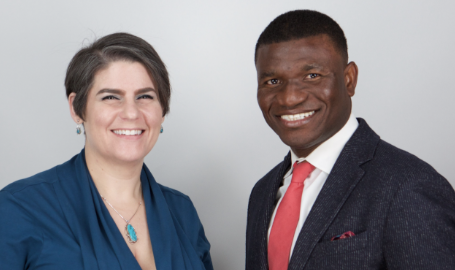
Conformity vs. Non-Conformity (Neurolinguistic Programming CEU Certificate Course - Session 2) (Self-Study)
Self-Study
KEY INFORMATION:
This course is eligible for 2 CEUs for social workers through the NASW National CE Approval Program in 46 states
This course is also eligible for 2 CEUs for Licensed Social Workers, Licensed Mental Health Counselors, Credentialed Alcoholism and Substance Abuse Counselors (CASACs), and Psychologists in New York State
For more information about CEU approval, please click here.
You will receive your certificate by email after your post-test is passed and your evaluation is completed.
Format: Self-Study Online Seminar
Introduction
This is the second session in the 12-Session Certificate Course with 22 CEUs.
To register for the entire Certificate Course, please click here.
NLP (Neuro-Linguistic Programming) is known as the Science of Life, and it touches upon everything related to Neuroscience, to our psychology, and beyond.
You will learn adjunctive tools to help you get unstuck when the more known evidence-based and traditional treatment modalities fail to work.
As the Science of Life, NLP is centered around three main objectives, which are to help us:
- Understand how we’ve been socialized and programmed.
- Learn and master how to undo any programming that is not working for us and how to reprogram ourselves.
- Use the Science of Life to promote excellence through modeling and to help others do the same.
As we continue to understand NLP, we also increase the speed with which we learn, develop a better command of ourselves, and communicate better with others, which once again helps us arrive at excellence in any area of our life, including in our field. NLP is an organized body of knowledge that has been used by millions of clinicians throughout the world as an adjunctive treatment. In terms of its adjunctive psychotherapeutic use, NLP has been validated and recognized by the United Kingdom Council for Psychotherapy.
“What a man can be, he must be.” - Abraham Maslow
What you'll learn
At the end of this Certificate Course, you will:
- Better use metaphors to communicate more effectively with your patients, clients, your loved ones, and with yourself.
- Better help your patients and clients uncover the socialized process and programming they have been trapped into.
- Help your patients and clients use the power of associations and anchoring as adjunct treatment for their trauma and anxiety.
- Help your patients and clients finally understand why they are not broken and how they can empower themselves.
- Apply adjunctive treatment to help your patients and clients learn how to better regulate their emotions, achieve their goals more efficiently, and become more resilient in life.
Who is this for?
This course is for any clinician invested in learning new or honing existing skills to be able to use in dynamic ways to support their patients and clients and to end suffering.
Here's what attendees have been saying about SWEET seminars:
"It was a great learning experience to apply in the workplace, and provided insight in understanding those who we try to assist on a regular basis." - Monica, LCSW
"I am so grateful to be a part of SWEET. It is educational, well-presented, and I learn something new or forgotten with every webinar that I attend." - Vilma, LCSW-R
"This material is complicated; you took big tenets and made it simple - thank you!" - Karen, LMSW
"I've been a Social Worker for 20 years and it is a good feeling to have found a solid continuing education platform to learn from." - Kerry, LMSW
"I love the fact that I can attend a live webinar from my home office. I like the interaction and learning from the attendees too. I love that I can take the test at my leisure and complete the evaluation immediately afterwards, and I think it is wonderful that I obtain my certificate within an hour. I like the facilitators so much. They are warm and engaging and show the ability to make everyone feel so welcome. It is a pleasure attending these webinars." - Mary Grace, LCSW-R

Session Topics:
Session 1: NLP: An Adjunctive Treatment
Session 2: NLP: Conformity vs. Non-Conformity
Session 3: NLP: The Human Experiential Model
Session 4: NLP: Frameshifting and The Triangulation Effect
Session 5: NLP: The 5th Season of Life
Session 6: NLP: The Lazarus Technique and The Wise Mind Model
Session 7: NLP: The 3 Dimensions
Session 8: NLP: The Gestalt Principle
Session 9: NLP: The Alphabet Game
Session 10: NLP: The Meta Mirror
Session 11: NLP: Anchoring
Session 12: NLP: The 4 Levels of Communication and The Mehrabian Model
Join Us Now!
Your Facilitator and Co-Facilitator

Mardoche Sidor, MD, is a Harvard-trained Quadruple Board Certified Psychiatrist, Assistant Professor of Psychiatry at Columbia University, School of Physicians and Surgeons, trained in and taught all major psychotherapeutic modalities, including and not limited to CBT, DBT, Family Systems, and Psychodynamic Psychotherapy. He is also the author of 11 books including Journey to Empowerment, Discovering Your Worth, The Power of Faith. and, The Art of Living. Dr. Sidor has worked both as a primary care physician and Medical Director in three different settings, including a Chief Medical Officer of the Center for Alternative Sentencing and Employment Services (CASES). He is a main facilitator for the SWEET Institute. His 11th book, entitled, NLP for Clinicians is now available to the public.
Karen Dubin, PhD, LCSW, is a Columbia-trained Social Worker with wide clinical, teaching, and supervision experience. She also has a background in management, mentorship, and leadership that spans more than 20 years. Her added passion is in advocacy and coaching. She has previously held Executive level positions, and two other directorships in different organizations. She is currently Adjunct Faculty at Columbia University School of Social Work and Adelphi University School of Social Work. She also maintains a private practice, provides supervision, and clinical and management training. She is also a personal and executive-level coach. She is a main facilitator for the SWEET Institute.
SWEET Curriculum
Frequently Asked Questions

